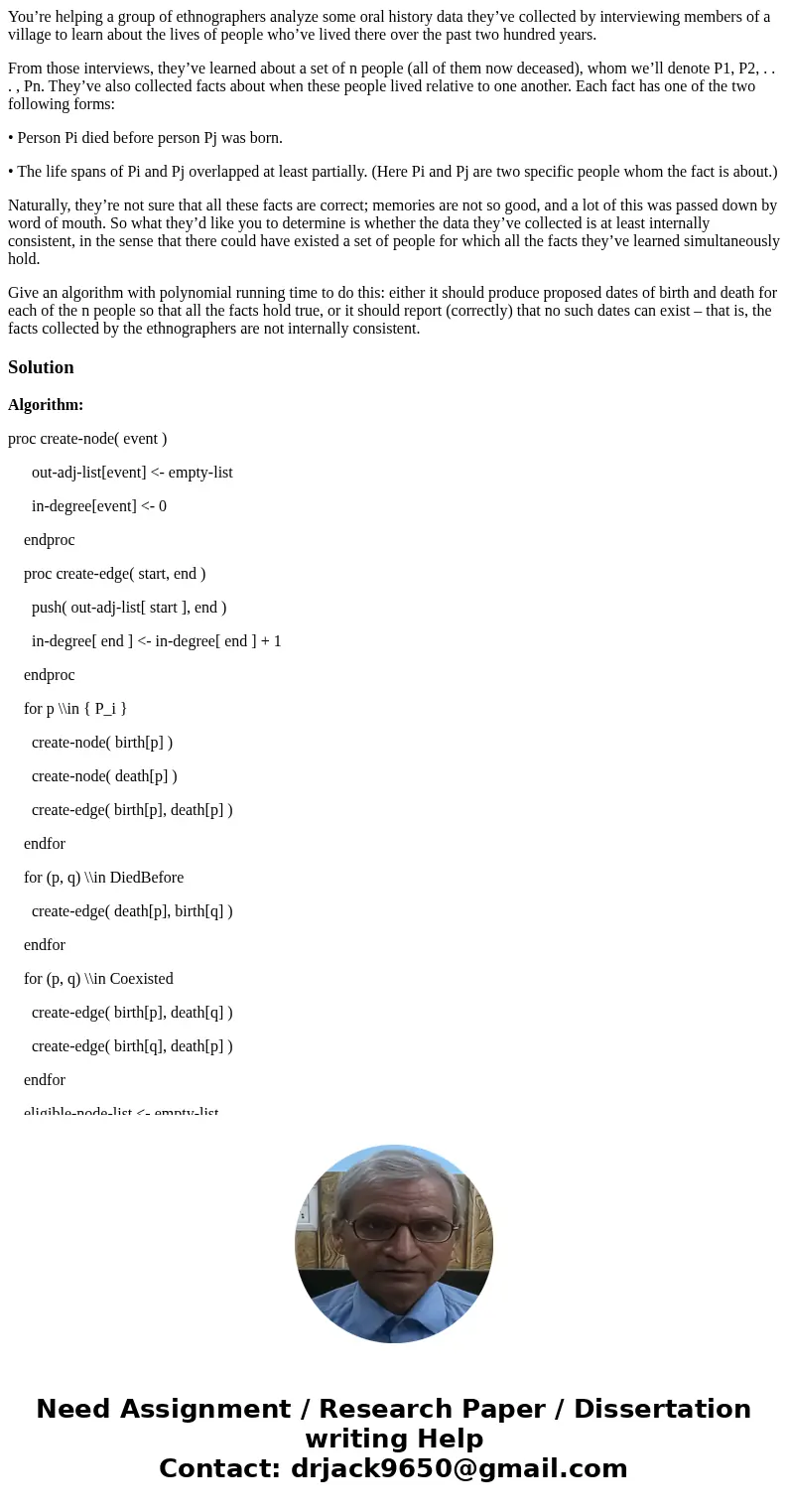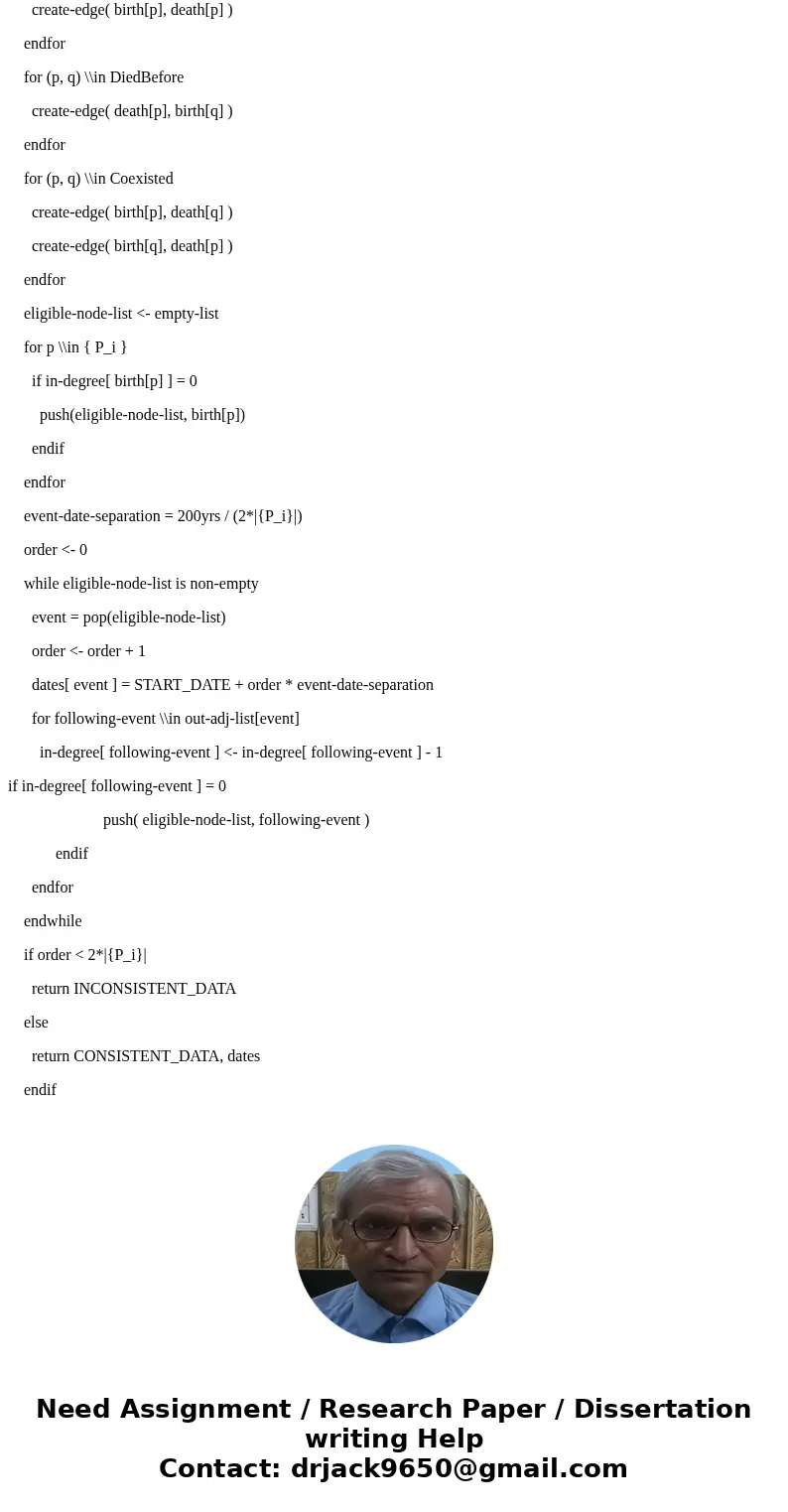Youre helping a group of ethnographers analyze some oral his
You’re helping a group of ethnographers analyze some oral history data they’ve collected by interviewing members of a village to learn about the lives of people who’ve lived there over the past two hundred years.
From those interviews, they’ve learned about a set of n people (all of them now deceased), whom we’ll denote P1, P2, . . . , Pn. They’ve also collected facts about when these people lived relative to one another. Each fact has one of the two following forms:
• Person Pi died before person Pj was born.
• The life spans of Pi and Pj overlapped at least partially. (Here Pi and Pj are two specific people whom the fact is about.)
Naturally, they’re not sure that all these facts are correct; memories are not so good, and a lot of this was passed down by word of mouth. So what they’d like you to determine is whether the data they’ve collected is at least internally consistent, in the sense that there could have existed a set of people for which all the facts they’ve learned simultaneously hold.
Give an algorithm with polynomial running time to do this: either it should produce proposed dates of birth and death for each of the n people so that all the facts hold true, or it should report (correctly) that no such dates can exist – that is, the facts collected by the ethnographers are not internally consistent.
Solution
Algorithm:
proc create-node( event )
out-adj-list[event] <- empty-list
in-degree[event] <- 0
endproc
proc create-edge( start, end )
push( out-adj-list[ start ], end )
in-degree[ end ] <- in-degree[ end ] + 1
endproc
for p \\in { P_i }
create-node( birth[p] )
create-node( death[p] )
create-edge( birth[p], death[p] )
endfor
for (p, q) \\in DiedBefore
create-edge( death[p], birth[q] )
endfor
for (p, q) \\in Coexisted
create-edge( birth[p], death[q] )
create-edge( birth[q], death[p] )
endfor
eligible-node-list <- empty-list
for p \\in { P_i }
if in-degree[ birth[p] ] = 0
push(eligible-node-list, birth[p])
endif
endfor
event-date-separation = 200yrs / (2*|{P_i}|)
order <- 0
while eligible-node-list is non-empty
event = pop(eligible-node-list)
order <- order + 1
dates[ event ] = START_DATE + order * event-date-separation
for following-event \\in out-adj-list[event]
in-degree[ following-event ] <- in-degree[ following-event ] - 1
if in-degree[ following-event ] = 0
push( eligible-node-list, following-event )
endif
endfor
endwhile
if order < 2*|{P_i}|
return INCONSISTENT_DATA
else
return CONSISTENT_DATA, dates
endif


 Homework Sourse
Homework Sourse